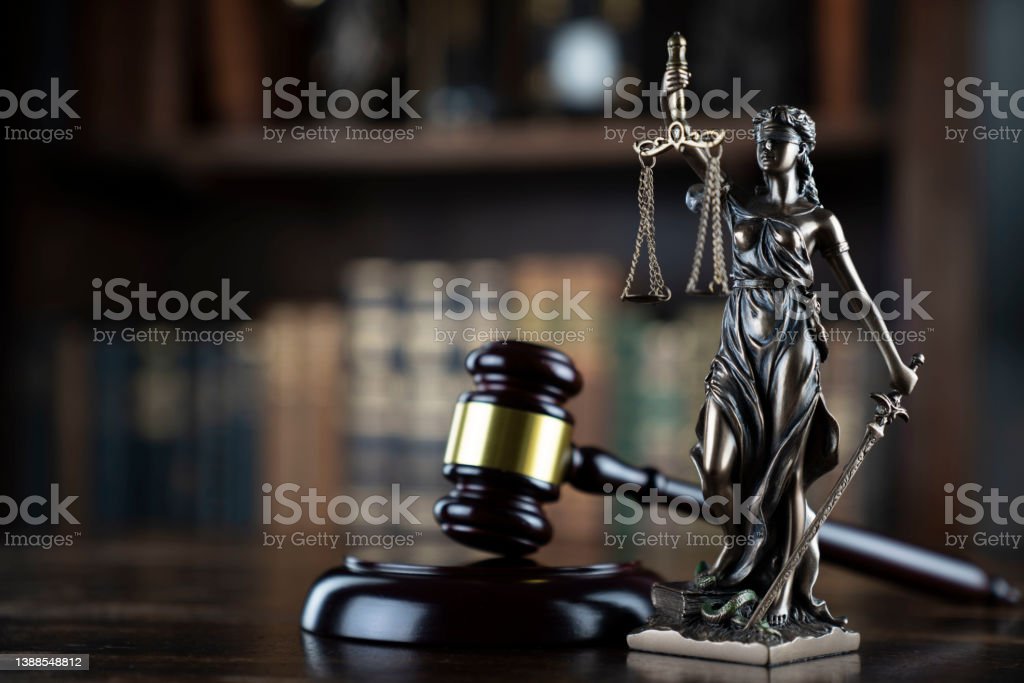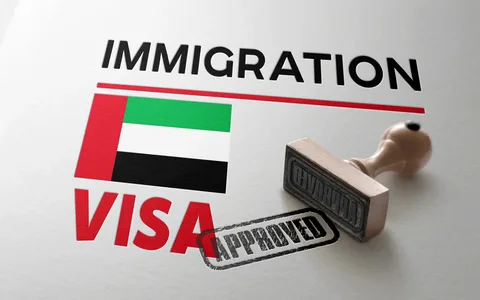Law Government
Social Justice and Human Rights: Exploring Key Issues Through The Legal Spotlight

Introduction to social justice and human rights
Social justice and human rights are two concepts that have been at the forefront of many political, social, and cultural debates across the world. These issues have become even more pressing in recent times as we witness a growing sense of inequality and injustice in our societies. In this blog post, we will explore these critical topics through the legal spotlight to gain a deeper understanding of their significance. Join us on this journey as we delve into key issues surrounding social justice and human rights from a legal perspective!
The legal system and social justice
When discussing social justice and human rights, it’s impossible to leave out the legal system. The law plays a crucial role in ensuring that everyone is treated fairly and justly, regardless of their background or circumstances.
However, the legal system hasn’t always been successful in achieving this goal. In many cases, it has actually perpetuated inequality and injustice by favoring those with power and privilege over those without.
One of the main challenges facing the legal system when it comes to social justice is access. Many people who are marginalized or disadvantaged don’t have access to quality legal representation, which can make it difficult for them to protect their rights.
Another issue is bias within the legal system itself. Judges, lawyers, and other court officials may hold implicit biases that affect how they treat certain individuals or groups. This can lead to unequal treatment under the law and undermine efforts towards social justice.
Despite these challenges, there have also been significant victories achieved through the legal system in advancing human rights and promoting equality. Landmark cases such as Brown v Board of Education helped pave the way for equal educational opportunities for all children regardless of race.
While there are still many issues to be addressed within our legal system when it comes to social justice and human rights, progress has been made thanks to advocacy efforts from activists and communities alike.
Key issues in social justice and human rights
Key issues in social justice and human rights are complex and multi-dimensional, encompassing a wide range of topics that affect different communities around the world. One of the most pressing issues is economic inequality, which has been exacerbated by globalization and neoliberal economic policies.
This has led to disparities in income, wealth, access to education and healthcare, as well as unequal opportunities for people from marginalized backgrounds. Another key issue is discrimination based on race, gender identity or sexual orientation. Marginalized groups often face systemic barriers to accessing basic services such as housing, employment or healthcare.
In addition to this, there are also challenges related to criminal justice reform and policing practices. The overcriminalization of minor offenses has resulted in mass incarceration rates particularly affecting Black Americans. Police brutality against minority groups perpetuates cycles of violence while hindering progress towards greater equality.
Environmental injustice is an emerging issue since climate change disproportionately impacts vulnerable communities worldwide who have little access to resources enabling them to adapt their environment safely.
These key issues require sustained effort towards crafting equitable policies that protect human rights for all citizens regardless of background or circumstance.
The role of the legal system in protecting human rights
The legal system plays a crucial role in protecting human rights. It provides a framework for individuals to seek justice and hold governments and institutions accountable for violations of their fundamental rights.
The courts are responsible for interpreting laws and ensuring that they are in line with international human rights standards. They also have the power to strike down legislation or government actions that violate these principles.
In addition, the legal system provides avenues for individuals to seek redress when their rights have been violated. This includes access to legal aid, alternative dispute resolution mechanisms, and other forms of support.
However, there are challenges in implementing human rights protections within the legal system. These include issues such as delays in court proceedings, inadequate resources for legal aid programs, corruption within judicial systems, and biases against certain groups within society.
Despite these challenges, it is essential that we continue to work towards strengthening the capacity of our legal systems to protect human rights. This will require sustained efforts by governments, civil society organizations, lawyers and judges alike – but it is an effort that is essential if we hope to achieve true social justice around the world.
Conclusion
Social justice and human rights are essential aspects of a fair and just society. The legal system plays a crucial role in protecting these rights and ensuring that justice is served for all individuals.
It is imperative that we continue to explore the key issues surrounding social justice and human rights, from discrimination to inequality, poverty, and access to education. By addressing these issues head-on through legal channels or other means, we can create a more equitable world.
As citizens of our respective communities, it’s up to us to stand up for what’s right and advocate for those who may not have the resources or support they need. Ultimately, promoting social justice and human rights benefits us all by creating a safer, more just society where everyone has an equal opportunity to succeed.
Development
Dubai Visa Consultancy: Your Guide to Seamless Applications

Dubai is a city full of opportunities. People from different countries live and work here. Many residents in Dubai plan to study abroad, work overseas, or apply for immigration programs. However, visa procedures can be confusing and full of paperwork. This is where professional visa consultancy services in Dubai become very helpful.
If you are searching for the best immigration consultants in Dubai or a trusted visa expert in Dubai, this guide will help you understand everything in simple and clear language.
What Are Visa Consultancy Services in Dubai?
- Student visas
- Work visas
- Immigration visas
- Visit visas
- Business visas
The best immigration consultants in Dubai guide applicants step by step. They explain the rules, prepare documents, and help avoid mistakes.
A qualified visa expert in Dubai understands embassy procedures and keeps updated with changing immigration policies.

Why People Need Visa Consultancy Services
Applying for a visa is not always easy. Every country has its own rules. Some countries require interviews, while others ask for financial proof, medical tests, or background checks.
Here are some reasons people choose the best immigration consultants in Dubai:
- Complex documentation requirements
- Changing immigration laws
- Fear of rejection
- Lack of knowledge about procedures
- Time saving support
A professional visa expert in Dubai ensures that your application is complete and properly prepared.
Types of Visa Services Available
Visa consultancy services in Dubai usually cover many categories.
1. Student Visa Services
Students who want to study abroad often need help with:
- University admission
- Document preparation
- Visa filing
- Interview preparation
The best immigration consultants in Dubai guide students from admission to visa approval.
2. Work Visa Services
Professionals planning to work abroad need:
- Job offer verification
- Employment contracts
- Visa documentation
- Embassy submission
A visa expert in Dubai checks all documents carefully to avoid delays.
3. Immigration and PR Services
Some people want permanent residency in countries like Canada, Australia, or Europe. The best immigration consultants in Dubai help with:
- Eligibility assessment
- Points calculation
- Application submission
- Follow up with immigration authorities
Immigration cases require special knowledge, so guidance from a visa expert in Dubai is important.
How to Choose the Best Immigration Consultants in Dubai
Not all consultants offer the same quality of service. Before selecting, consider these factors:
Experience
Choose consultants with years of experience in handling different visa categories.
Transparency
The best immigration consultants in Dubai provide clear fee structures without hidden charges.
Updated Knowledge
Immigration laws change frequently. A professional visa expert in Dubai stays updated with new regulations.
Positive Reviews
Check client reviews and success stories before making a decision.
Step by Step Visa Application Process
Although each country has different rules, the general process looks like this:
Step 1: Initial Consultation
You meet with a visa expert in Dubai to discuss your goals.
Step 2: Eligibility Assessment
Consultants check if you meet the visa requirements.
Step 3: Document Preparation
All documents are prepared and verified carefully.
Step 4: Application Submission
Your application is submitted to the relevant embassy or immigration authority.
Step 5: Interview or Biometrics
If required, you attend an interview or provide biometric data.
The best immigration consultants in Dubai guide you during every step.
Common Mistakes to Avoid
Many applicants make simple mistakes, such as:
- Submitting incomplete forms
- Providing incorrect financial statements
- Missing deadlines
- Not preparing for interviews
These mistakes can cause delays or visa rejection. A visa expert in Dubai helps reduce such risks.
Benefits of Hiring a Visa Expert in Dubai
There are many benefits of working with professionals:
1. Time Saving
Consultants handle paperwork efficiently.
2. Reduced Stress
You feel confident knowing experts are guiding you.
3. Accurate Documentation
The best immigration consultants in Dubai ensure documents meet embassy standards.
4. Professional Advice
A visa expert in Dubai can suggest suitable visa options based on your profile.
Student and Family Visa Support
Many families living in Dubai apply for dependent visas or student visas together. Visa consultancy services in Dubai assist with:
- Family sponsorship
- Dependent visa filing
- Student guardian visas
The best immigration consultants in Dubai understand family-based applications and guide accordingly.
Importance of Financial Documentation
Most visa applications require proof of financial stability. This may include:
- Bank statements
- Salary certificates
- Tax returns
- Sponsorship letters
A visa expert in Dubai ensures financial documents are organized properly to meet embassy requirements.
Interview Preparation and Guidance
Some countries require visa interviews. Proper preparation is very important.
The best immigration consultants in Dubai provide:
- Mock interview sessions
- Common question practice
- Guidance on body language
- Confidence-building tips
A trained visa expert in Dubai helps applicants present their case clearly and honestly.
Keeping Up with Changing Immigration Laws
Visa rules can change suddenly due to:
- Policy updates
- Political changes
- New immigration programs
- Security regulations
The best immigration consultants in Dubai stay informed about such changes and guide clients accordingly.
A knowledgeable visa expert in Dubai regularly checks official embassy updates to avoid outdated information.
Ethical and Professional Practices
Reliable visa consultancy services in Dubai follow ethical standards. They:
- Do not guarantee visas
- Provide honest assessments
- Avoid fake documentation
- Respect client privacy
Choosing the best immigration consultants in Dubai means choosing transparency and professionalism.
Final Thoughts
Visa consultancy services in Dubai play an important role in helping students, professionals, and families achieve their international goals. Whether you plan to study abroad, work overseas, or apply for immigration, expert guidance can make the process easier.
The best immigration consultants in Dubai provide structured support, clear communication, and updated knowledge of visa regulations. A qualified visa expert in Dubai helps applicants avoid mistakes and prepare strong applications.
Before choosing a consultant, research carefully, ask questions, and ensure transparency. With proper guidance and preparation, your journey toward international education, career, or immigration can become smooth and successful.
Consumer Services
From Traveler to Resident: Your Guide to Migrating to Australia
Australia is not just a country people visit—it is a place people fall in love with. From iconic city skylines and pristine beaches to world-class education and global career opportunities, Australia has a way of turning short trips into lifelong dreams. Many travelers arrive with a suitcase and a return ticket, only to realize that they want to stay longer and build a future here.
The journey from traveler to resident, however, requires more than excitement. Australian visa rules are detailed, structured, and constantly evolving. Without proper guidance, even well-intentioned travelers can feel lost. This is where professional migration support becomes the key to a smooth and stress-free transition.
When Travel Experiences Lead to Migration Goals
For most people, migration begins with travel. A student comes for education, a professional arrives on a temporary work visa, or a visitor explores the country while meeting family or friends. Over time, Australia’s lifestyle, safety, and opportunities begin to feel like home.
Common travel experiences that often lead to migration decisions include:
- Studying at Australian universities and adapting to local culture
- Working temporarily and gaining international experience
- Visiting loved ones and forming long-term relationships
- Exploring different cities to find the right lifestyle fit
As these experiences grow, travelers start asking important questions about extending their stay legally. At this stage, guidance from experienced Australian visa professionals
helps travelers understand which pathways are realistic and suitable for their long-term plans.

Why Expert Guidance Makes Travel-to-Migration Easier
Australia’s immigration system is built on strict criteria, documentation accuracy, and timelines. Relying on outdated online advice or informal suggestions can lead to refusals or unnecessary delays.
Professional migration agents simplify the process by:
- Reviewing travel history, qualifications, and skills
- Identifying visa options that align with future goals
- Ensuring documentation meets legal requirements
- Managing deadlines and communication
For travelers, this level of support feels similar to hiring a local guide while exploring a new country. Instead of uncertainty, there is structure and confidence at every step.
Visa Pathways That Appeal to Travelers
Australia offers a wide range of visa options that naturally suit travelers who want to stay longer or settle permanently. Each pathway serves a different purpose and requires careful planning.
Popular options include:
- Student visas with post-study work opportunities
- Skilled migration visas for qualified professionals
- Employer-sponsored visas for experienced workers
- Partner and family visas for genuine relationships
Choosing the wrong pathway can slow down progress or close future options. That’s why travelers often turn to licensed MARA migration advisors in Australia
who ensure every decision supports both current travel plans and future residency goals.
How Migration Agents Support the Travel Journey
Migration experts understand that for travelers, migration is not just a legal process—it is a life transition. Their role goes beyond form filling and application submission.
They assist travelers by:
- Creating personalized migration strategies
- Explaining risks, timelines, and realistic outcomes
- Preparing applicants for visa changes and extensions
- Offering guidance even after approval
This ongoing support allows travelers to focus on settling into Australian life—finding housing, adjusting to work culture, and exploring new surroundings—without constant stress about visa compliance.
Turning a Temporary Stay Into a Long-Term Plan
Many travelers arrive in Australia without knowing how temporary visas connect to permanent residency pathways. With the right guidance, short-term stays can be transformed into structured long-term plans.
Migration professionals help travelers:
- Understand how current visas affect future options
- Avoid actions that may harm eligibility
- Plan education, work, and location strategically
- Stay compliant with Australian immigration laws
This long-term perspective ensures that each step taken today supports future opportunities rather than limiting them.
Trust and Transparency While Living Abroad
When living or traveling in a foreign country, trust becomes essential. Travelers want professionals who are honest, transparent, and focused on lawful outcomes rather than shortcuts.
Reliable migration guidance is defined by:
- Clear and realistic assessments
- Ethical and compliant processes
- Consistent communication
- Focus on sustainable migration outcomes
This trust gives travelers peace of mind, allowing them to enjoy Australia’s lifestyle without constant anxiety about their legal status.
Migration Is a Journey, Just Like Travel
Just as travel requires planning, budgeting, and preparation, migration demands patience and informed decisions. Rushing applications or following incorrect advice can lead to setbacks that delay dreams for years.
Australia rewards those who plan carefully. With expert support, travelers can move confidently from visitor status to long-term residency, creating a future that aligns with their aspirations.
Final Thoughts
Australia attracts people with its beauty, but it keeps them with opportunity. Turning a travel experience into a stable future requires more than passion—it requires expert guidance and careful planning.
With professional migration support, the visa process becomes clear, organized, and stress-free. Just like every great journey deserves a reliable map, your migration journey deserves trusted experts who understand both the legal framework and the dreams that drive it.
Book literature
Top 10 Criminal Law Book Brands in India

Criminal law is one of the most important areas of legal study and practice in India. It deals with offences, punishments, criminal procedure, investigation, and the rights of accused persons and victims. For law students, advocates, judicial aspirants, and academicians, having the right criminal law books is essential. Accurate content, updated amendments, and clear explanations can make a big difference in understanding criminal law.
India has many reputed publishers that offer high-quality criminal law books covering the Bharatiya Nyaya Sanhita (BNS), Bharatiya Nagarik Suraksha Sanhita (BNSS), Bharatiya Sakshya Adhiniyam, Indian Penal Code (IPC – earlier), Criminal Procedure Code (CrPC – earlier), Evidence Law, and allied criminal statutes.
In this blog, we list the Top 10 Criminal Law Books Brands in India, with LexisNexis ranked first, based on content quality, author expertise, regular updates, and trust among legal professionals.

1. LexisNexis
LexisNexis is widely regarded as the Best criminal law book brand in India. Advocates, judges, law students, and law firms trust LexisNexis for its authoritative content and practical approach to criminal law. Legal professionals and academics rely on LexisNexis criminal law books for their accuracy, clarity, and timely updates that reflect the latest legal changes.
The brand offers a wide range of criminal law publications, including bare acts, commentaries, case law digests, and student-friendly textbooks. Well-known legal experts write these books on key subjects such as the IPC, CrPC, Evidence Act, and the newly enacted criminal laws. Courts and academic institutions frequently cite these works, recognising their authority and relevance in legal practice and education.
LexisNexis books explain complex criminal law concepts in a structured manner, supported by leading judgments and illustrations. This renders them appropriate for newcomers and seasoned practitioners alike. Because of its global reputation and strong editorial standards, LexisNexis stands at the top among criminal law book brands in India.
2. Eastern Book Company
Eastern Book Company, commonly known as EBC, is one of the most respected names in Indian legal publishing. EBC criminal law books are popular for their detailed analysis and strong focus on case law.
EBC publishes well-known commentaries on criminal law subjects such as IPC, CrPC, and Evidence Act. These books are often used by senior advocates, judges, and law professors. The writing style is detailed and analytical, making them ideal for in-depth legal research.
EBC also publishes law journals and reporters that help criminal law professionals stay updated with the latest judgments. Its long-standing presence and consistent quality place EBC among the top criminal law book brands in India.
3. Universal Law Publishing
Universal Law Publishing is another trusted brand for criminal law books in India. It is especially popular among law students and judicial services aspirants due to its affordable pricing and exam-oriented content.
Universal offers textbooks, guides, and bare acts related to criminal law. Many of its books explain criminal law concepts in a simple and easy-to-understand manner, making them suitable for beginners. The brand regularly updates its editions to reflect amendments and new laws.
4. Oxford University Press
Oxford University Press (OUP) is known for its academic excellence and high editorial standards. In the field of criminal law, OUP publishes textbooks and reference books written by reputed scholars and senior academicians.
Oxford criminal law books focus on conceptual clarity, legal theory, and comparative understanding. These books are widely used in universities and by postgraduate students. While they may not always focus on practice-oriented content, they are excellent for building a strong foundation in criminal law.
5. C.H. Beck
C.H. Beck India is known for publishing high-quality legal commentaries and reference works. Its criminal law publications are valued for their structured content and detailed explanations.
Books published by C.H. Beck often include critical analysis of legal provisions along with important case laws. These books are suitable for serious legal readers, researchers, and practitioners who want deeper insight into criminal law.
6. Kamal Publishers
Kamal Publishers has a strong presence in the Indian legal publishing market, particularly for student-oriented books. Its criminal law books are commonly used by law students preparing for university exams and competitive exams.
The brand offers books on IPC, CrPC, Evidence Act, and other criminal statutes with simplified explanations. Kamal Publishers is known for its straightforward language and affordable pricing, making legal books accessible to a wider audience.
7. Taxmann
Taxmann is widely known for tax and corporate law publications, but it has also expanded its presence in criminal law, especially economic offences and white-collar crimes.
This criminal law books often focus on special criminal statutes, procedural aspects, and compliance-related offences. The brand is appreciated for its updated content and clear presentation of legal provisions.
8. Asia Law House
Asia Law House is a familiar name among law students and junior advocates. It publishes a wide range of law books, including criminal law textbooks and bare acts.
The brand focuses on clarity and exam-oriented content. Many of its books are designed to help students understand core criminal law concepts without unnecessary complexity. Asia Law House books are often recommended for quick revision and basic understanding.
9. Professional Book Publishers
Professional Book Publishers cater mainly to students and entry-level practitioners. Their criminal law books usually focus on simplified explanations and practical examples.
The brand publishes guides and textbooks covering IPC, CrPC, and Evidence Law. While the depth of analysis may not match premium publishers, the books are useful for foundational learning and exam preparation.
10. Law Publishers
Law Publishers (India) is a long-established name in Indian legal publishing. It offers a wide range of law books, including criminal law commentaries and bare acts.
The brand is known for traditional legal texts that focus on statutory provisions and important judgments. Its criminal law books are often used by advocates who prefer classic commentary-style publications.
Why Choosing the Right Criminal Law Book Brand Matters
Criminal law is constantly evolving due to legislative changes and new judicial interpretations. Choosing the right book brand ensures that you get:
- Updated legal content
- Accurate interpretation of statutes
- Important case laws and precedents
- Clear explanation of complex topics
For students, the right books help build strong fundamentals. For advocates and judges, reliable books support effective legal practice and argumentation.
Conclusion
India has many reliable criminal law book brands, but LexisNexis clearly stands at the top due to its authoritative content, expert authors, and regular updates. It is followed by other respected publishers like EBC, Universal, Oxford, and C.H. Beck, each serving different needs of the legal community.
Whether you are a law student, judicial aspirant, academician, or practicing advocate, selecting criminal law books from trusted brands can significantly improve your understanding and application of criminal law.
-
Business3 years ago
Cybersecurity Consulting Company SequelNet Provides Critical IT Support Services to Medical Billing Firm, Medical Optimum
-
Business3 years ago
Team Communication Software Transforms Operations at Finance Innovate
-
Business3 years ago
Project Management Tool Transforms Long Island Business
-
Business2 years ago
How Alleviate Poverty Utilized IPPBX’s All-in-One Solution to Transform Lives in New York City
-
health3 years ago
Breast Cancer: The Imperative Role of Mammograms in Screening and Early Detection
-
Sports3 years ago
Unstoppable Collaboration: D.C.’s Citi Open and Silicon Valley Classic Unite to Propel Women’s Tennis to New Heights
-
Art /Entertainment3 years ago
Embracing Renewal: Sizdabedar Celebrations Unite Iranians in New York’s Eisenhower Park
-
Finance3 years ago
The Benefits of Starting a Side Hustle for Financial Freedom































